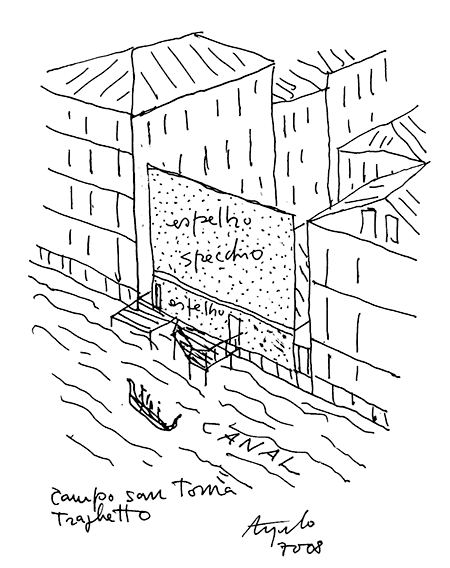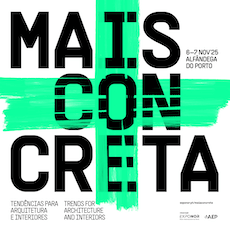Início em 30/11/2021 até 30/11/2021

No próximo dia 30 de novembro de 2021, das 13h00-18h00, irá decorrer a videoconferência o Encontro | NEB goes South ‘The Maieutics of the City’.
Reflectir e propor futuros modos de vida que respondam ao Pacto Ecológico através de soluções sustentáveis, inclusivas e belas é o desafio central da “New European Bauhaus”. Reconhecendo a condição comum – geográfica e climática – dos países do Sul da Europa e o seu legado cultural, a Universidade do Porto associa universidades de seis países na criação de uma plataforma pan-europeia de encontro e debate — NEB goes South — que possa contribuir para a identificação de problemas e oportunidades comuns e partilha de experiências. Arquitectos, paisagistas, designers, engenheiros, geógrafos, sociólogos e outros especialistas irão procurar compreender e mapear as especificidades do sul da Europa, para reflectir e propor respostas mais adaptadas.
O 4.º evento – ‘The Maieutics of the City’-, da série de seis eventos organizados por cada uma das Universidades parceiras do projecto, é organizado pelo Departamento de Arquitectura da Universidade de Bolonha, Campus de Cesena.
The Maieutics of the City
Our cities, which have experienced major changes since the mid-twentieth century, need to be rethought, to be repopulated by new architectures full of meaning and capable of responding to the new urges imposed on us by the environmental, social and economic situation.After the Second World War, driven by the economy of reconstruction, a mechanism of transformation and growth of European cities was set in motion and, with different declinations depending on the countries and latitudes, it has continued until today.Working on the consolidated city is the horizon in which contemporary architecture has begun to move for some years now. It is therefore this one a field of research and experimentation for new structures of the urban scene.Redeveloping, regenerating, building on the built, urban recycle, zero consumption, are all lexical formulas that, from different points of view and with different nuances, indicate the same situation and the intent to deal with those areas that the voracity of the urbanization processes of the last half century, has left unresolved or vague or clearly unpleasant. Remedying stretch marks and visual disorder, such as accidents and aporias scattered by the rapid succession of transformations, is one of the tasks that architects will have to face in the near future, perhaps the most conspicuous.In the diversity of approaches and formal outcomes, however, we can recognize a common basic orientation that aims to re-propose the primacy of public space, its decorum and representativeness, in the process of reformulation of the urban landscape.The observation of the built heritage that over the centuries has formed urban places, here understood in its broadest sense and not restricted to what is generally indicated as an object of art, is now part of an architectural culture of the modern that finds its own reason for being, one’s vital substance. The old European cities, despite the devastation of the war or the various speculative tampering of the last century, are rich of urban places and territories that still today allow contemporary life to unfold more than adequately. And this is even more true today, for example, thanks to the facilities of remote communication that are now enormously facilitated, which make it possible to work or maintain relationships in every part of the globe, regardless of where you live. The future social scenarios, of which there are already examples in various parts of the world, will allow us to further rethink the city as a place of conviviality in which the clear division between workplaces and places to live will be less and less accentuated. As in ancient cities, urban specializations may be less and less marked, becoming no longer stringent, having to travel long distances to go to the workplace and potentially can animate new civic identities. The discourse is naturally more complex and the field of observation cannot be restricted only to the historical construction. Instead, it must expand towards the many cases that even in modern times have been able to provide convincing answers to the construction of cities precisely because of their constant confrontation with the housing that has been established as a response to consolidated human needs. Architecture as a lasting civil fact and not a mere object of rapidly obsolete hyper-technological design should guide the choices of communities in the creation of new buildings or new neighborhoods.The New European Bauhaus Goes South meeting organized by the Cesena School intends to take stock of the recent research through design hypotheses and theories advanced by some exponents of contemporary architectural culture.
Programa
13h00 | Welcome
Fabrizio Apollonio
University of Bologna, Head of Department of Architecture
João Pedro Xavier
University of Porto, Dean of Faculty of Architecture
Elena Mucelli
University of Bologna, Program Coordinator
Francesco Saverio Fera
University of Bologna, Full Professor at Department of Architecture
13h30 | Keynote speakers
13h30 | Roberto Collovà
University of Bologna, Head of Department of Architecture
14h15 | Hans van der Hijden
Amsterdam
15h00 | Virtual Coffee Break
15h15 | Parallel Sessions
Francesco Saverio Fera (moderator)
University of Bologna, Full Professor at Department of Architecture
Antonio Esposito
University of Bologna, Professor at Department of Architecture
Camillo Orfeo
University of Naples
Fabrizio Foti
University of Catania
Federica Visconti
University of Naples
Francesco Collotti
University of Florence
Franco de Filippis
Polytechnic of Bari
Gino Malacarne
University of Bologna
Ildebrando Clemente
University of Bologna
Ildebrando Clemente
University of Bologna
Karin Templin
Florence / London
Martina Landsberger
Polytechnic of Milano
Massimo Ferrari
Polytechnic of Milano
Michele Caja
Polytechnic of Milano
Raffaella Neri
Polytechnic of Milano
Renato Capozzi
University of Naples
17h30 | Virtual Coffee Break
17h45 | Announcement of Valencia event
Débora Domingo-Calabuig
Polytechnic University of Valencia, Professor at School of Architecture
17h55 | wrap-up
Francesco Saverio Fera
University of Bologna, Full Professor at Department of Architecture
As sessões serão proferidas em inglês, sem tradução em português.
Programa sujeito a alterações (sem aviso prévio).
Este evento é passível de ser registado e divulgado pela FAUP através de fotografia e vídeo.
A FAUP não emite declarações de presença ou assistência online do evento.
- Fabrizio Apollonio
- João Pedro Xavier
- Elena Mucelli
- Francesco Saverio Fera
- Roberto Collovà
- Hans van der Hijden
- Antonio Esposito
- Camillo Orfeo
- Fabrizio Foti
- Catania Federica Visconti
- Francesco Collotti
- Franco de Filippis
- Gino Malacarne
- Ildebrando Clemente
- Karin Templin
- Martina Landsberger
- Massimo Ferrari
- Michele Caja
- Raffaella Neri
- Renato Capozzi
- Débora Domingo-Calabuig
- Francesco Saverio Fera
- Encontro : NEB goes South
- Tema: The Maieutics of the City



